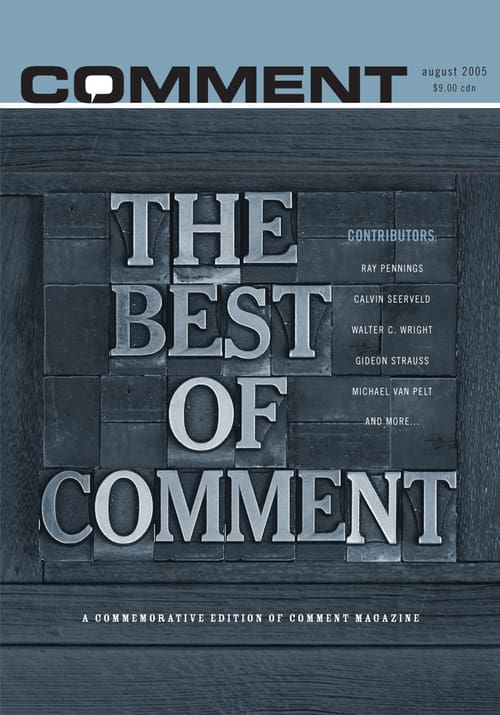The ceremony marking one’s entrance into the profession of law is known as the “call to the bar.” Jokes about lawyers’ fondness for inebriating beverages aside, it would be hard to imagine a more explicit, and yet mysterious, connection between the idea of vocation and the reality of work. Lawyers are glamorized as much as they are vilified, but as a student-at-law a mere six months away from my own call to the bar, I can report that, for the most part, the practice of law consists primarily of tedium. The contracts are dry, the paperwork exacting, and the working environment more like a library than a bullpen.
My present field of practice is corporate securities, spiced with a little commercial litigation. While criminal and family lawyers have the satisfaction of seeking justice in the thickets of the court system, corporate lawyers tend to perform the more clerical work of servicing the institutions of justice. A large part of our time is spent on “compliance”: that is, filing forms with regulators whenever shares are issued, reporting material changes in a company’s business activities, reviewing agreements for their enforceability, and ensuring that accurate information is disseminated, legally, to the company’s investors. When clients see us (or the rules we represent) as an obstacle, and the public views us as costly parasites, it can be difficult to find a sense of purpose. And a conviction that we are engaged in “doing justice”? Forget it. We don’t deal in welfare reform, “unimaginable evil”, or Middle East politics. We deal in Form 45-106F1s for the Toronto Stock Exchange.
What, then, comprises “doing justice” for the corporate lawyer? What utopian vision are we doing our best to approximate? Reading Garber’s article, I was struck by how focused we often are on change as a prerequisite for justice. For Garber’s students, justice is something that “happens” or a state of affairs brought about as we put our “shoulders to the wheel of history.” It’s true: justice may at times involve change, and a glorious ideal may (sometimes) be the catalyst for (positive) change. But here are two other ways of thinking about justice that may help those for whom rubbing shoulders with greatness is not a workaday reality.
First, justice is as much or more about personal character as it is about the potential to “make a difference.” Sadly, the oath that every Ontario law student being called to the bar must take is not well known or acknowledged, even by the students themselves:
I swear or affirm that I will conduct all matters and proceedings diligently and faithfully and to the best of my knowledge and ability. I will not seek to destroy any person’s property. I will not promote suits upon frivolous pretences. I will not pervert the law to favour or prejudice any person. In all things, I will conduct myself truly, honestly and with integrity. I will abide by the standards and rules governing the practice of law in the Province of Ontario. I will seek to improve the administration of justice. I will uphold the rule of law and I will uphold the interests, rights and freedoms of all persons according to the constitution and the laws of Canada and of the Province of Ontario.
To conduct ourselves “truly, honestly, and with integrity” is a habit developed over a lifetime. For the most part, it is a thankless task. No one will admire us for not padding our dockets, or hold parades because we held to the spirit, and not just the letter, of convoluted tax or securities provisions. Yet personal discipline is the foundation for seeking to improve the administration of justice and must surely precede the desire to change others.
Second, justice for others must begin with recognition of, empathy for, and identification with their moral agency. What Markus Dubber calls a “sense of justice” must be the starting point for our relationship with other lawyers and lawmakers, with clients, and with the public. If we understand justice to be primarily a mental model of perfection against which we compare and critique others, then we have already failed to do justice.
As a universal capacity, [the sense of justice is] what connects all members of a community of justice, across official and unofficial roles. At bottom, it’s the ability and willingness to recognize others as equal and rational persons [Dubber also uses the term “moral persons”] and treat them as such, by placing oneself in their shoes and experiencing things from their point of view, even if that point of view is substantively—and substantially—different from our own.
 |
It is often hard to see the disagreeable client across the table or the difficult colleague in the office next door as agents of justice. It is easy to see them as the ruins of humanity that, at best, might be patched up into serviceable social structures. Such an instrumental view of others, however, undermines the “mutual role-taking” that, as Dubber says, lends moral significance to the respect for others’ interests, rights, and freedoms that is mandated by the lawyer’s oath.
It’s true that throughout law school, and especially as we enter our legal careers, we become suspicious of pure and noble aspirations. At our worst, we learn to cynically manipulate others’ ideals to our own or our clients’ ends. At our best, however, we seek to accommodate differences, to memorialize relationships between individuals and organizations in ways that protect other stakeholders and the general public, and to negotiate bloodless, if not always amicable, compromises between the business person and his or her neighbour.
Only by developing the kind of character and relationships which our profession demands will we experience the positive side of what W.E.B. Du Bois wrote late in his life:
The return from your work must be the satisfaction which that work brings you and the world’s need of that work. With this, life is heaven, or as near heaven as you can get. Without this—with work that you despise, which bores you and which the world does not need—this life is hell.


